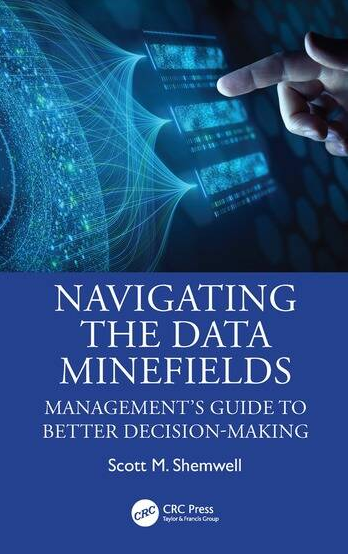Is outsourcing software development strategic or simply a cost saving method?
It Depends
The most infamous words in software development. Yes, it depends on the task at hand, but this cop out has long been a way to forego the development of a robust economic value and risk assessment.
According to one vendor, “Engineering started becoming a commodity.” But is this true if your product and organizational reputation are based on the long-earned perception that your organization provides the very best in safe and cost-effective solutions?
What is your solution must work all the time, every time, e.g. medical equipment? The list goes on, but readers get the point.
Strategic Sourcing
According to CIPS, the Chartered Institute of Procurement & Supply, “Strategic sourcing is about having a targeted approach to your procurement activity. A sourcing strategy will help you to formalise the way you gather information, so you can find the best possible value that aligns with your organisation’s goals, long term. Strategic sourcing is a long-term process and requires continuous re-evaluation of sourcing activities, analysis of the market and recognising your organisations goals.
Strategic sourcing is important because it can help you save costs through the monitoring of the market and sourcing the right suppliers. It also acts as a way to maintain long-term relationships with suppliers and they are selected on their compatibility with your organisation’s goals.”
While strategic sourcing has its value, it cannot replace organization core competency. These are two very different business requirements.
Core Competency
From One definition, “core competencies refer to the capabilities, knowledge, skills and resources that constitute its defining strengths. Core competencies distinguish a company from other organizations and are, therefore, not easily replicated by those organizations, whether they’re existing competitors or new entrants into its market.”
Not all engineering meets the test of core competency, but management must perform proper ‘due diligence’ before outsourcing technology and processes that either do or might meet this test. In other words, effective Risk Profiling.
Max 8 Headlines, Again
The once storied aerospace firm, Boeing just can’t seem to catch a break. A self-made purgatory: the gift that keeps on giving. Offshoring engineering software development as a cost saving method appears to have backfired.
Damningly, Multiple investigations – including a Justice Department criminal probe – are trying to unravel how and when critical decisions were made about the Max’s software. During the crashes of Lion Air and Ethiopian Airlines planes that killed 346 people, investigators suspect, the MCAS system pushed the planes into uncontrollable dives because of bad data from a single sensor.
That design violated basic principles of redundancy for generations of Boeing engineers, and the company apparently never tested to see how the software would respond, Lemme said. “It was a stunning fail,” he said. “A lot of people should have thought of this problem – not one person – and asked about it.”
To this observer, it appears that this software met the test for core competency. If this is the case, why would this be outsourced to save a few bucks? It certainly appears to be outside the organization’s culture of redundancy that has served the organization well for decade. A third-party vendor most likely would not share this cultural trait.
How does your organization handle Bet Your Company procurement decisions?
Pre order our new book
Navigating the Data Minefields:
Management’s Guide to Better Decision-Making
We are living in an era of data and software exponential growth. A substantive flood hitting us every day. Geek heaven! But what if information technology is not your cup of tea and you may even have your kids help with your smart devices? This may not be a problem at home; however, what if you job depends on Big Data and Artificial Intelligence (AI)?
Available April 2025
For More Information
Please note, RRI does not endorse or advocate the links to any third-party materials herein. They are provided for education and entertainment only.
See our Economic Value Proposition Matrix® (EVPM) for additional information and a free version to build your own EVPM.
The author’s credentials in this field are available on his LinkedIn page. Moreover, Dr. Shemwell is a coauthor of the recently published book, “Smart Manufacturing: Integrating Transformational Technologies for Competitiveness and Sustainability.” His focus is on Operational Technologies.
We are also pleased to announce our forthcoming book to be published by CRC Press in 2025, Navigating the Data Minefields: Management’s Guide to Better Decision-Making. This is a book for the non-IT executive who is faced with making major technology decisions as firms acquire advanced technologies such as Artificial Intelligence (AI).
“People fail to get along because they fear each other; they fear each other because they don’t know each other; they don’t know each other because they have not communicated with each other.” (Martin Luther King speech at Cornell College, 1962). For more information on Cross Cultural Engagement, check out our Cross-Cultural Serious Game. You can contact this author as well.
For more details regarding climate change models, check out Bjorn Lomborg and his book, False Alarm: How Climate Change Panic Costs Us Trillions, Hurts the Poor, and Fails to Fix the Planet.
Regarding the economics of Climate Change, check out our blog, Crippling Green.
For those start-up firms addressing energy (including renewables) challenges, the author can put you in touch with Global Energy Mentors which provide no-cost mentoring services from energy experts. If interested, check it out and give me a shout.


